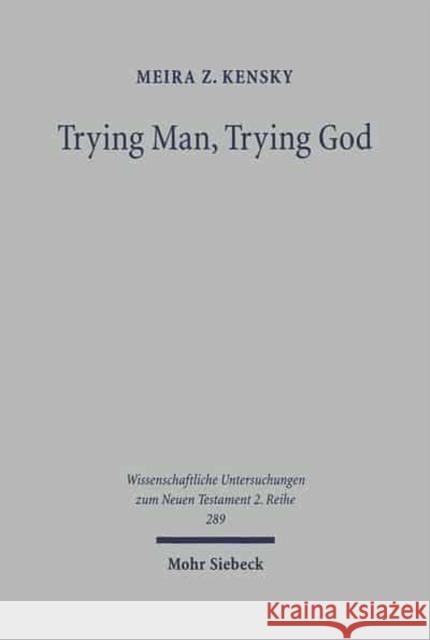Trying Man, Trying God: The Divine Courtroom in Early Jewish and Christian Literature » książka
Trying Man, Trying God: The Divine Courtroom in Early Jewish and Christian Literature
ISBN-13: 9783161504099 / Angielski / Miękka / 2010 / 379 str.
Meira Z. Kensky examines scenes of the divine courtroom in Jewish and Christian literature from antiquity. Her central argument is that these courtroom scenes, though fanciful in nature and often remarkably entertaining, are part of a serious inquiry taking place throughout the Mediterranean as to the nature of divine justice. These scenes can contain explicit criticism about the adequacy and equity of God's justice, or can be used to attempt to vindicate God from charges of injustice and inequity. What is important is that this amounts to a rotation of the courtroom scene: the courtroom, rather than simply functioning on the narrative level with the reader as an additional spectator, is rotated so that the reader is in the judicial position, and it is the judge and the process itself which are being adjudicated. When man is tried, it is truly God who is on trial.
Meira Z. Kensky examines scenes of the divine courtroom in Jewish and Christian literature from antiquity. Her central argument is that these courtroom scenes, though fanciful in nature and often remarkably entertaining, are part of a serious inquiry taking place throughout the Mediterranean as to the nature of divine justice. These scenes can contain explicit criticism about the adequacy and equity of God s justice, or can be used to attempt to vindicate God from charges of injustice and inequity. What is important is that this amounts to a rotation of the courtroom scene: the courtroom, rather than simply functioning on the narrative level with the reader as an additional spectator, is rotated so that the reader is in the judicial position, and it is the judge and the process itself which are being adjudicated. When man is tried, it is truly God who is on trial.











